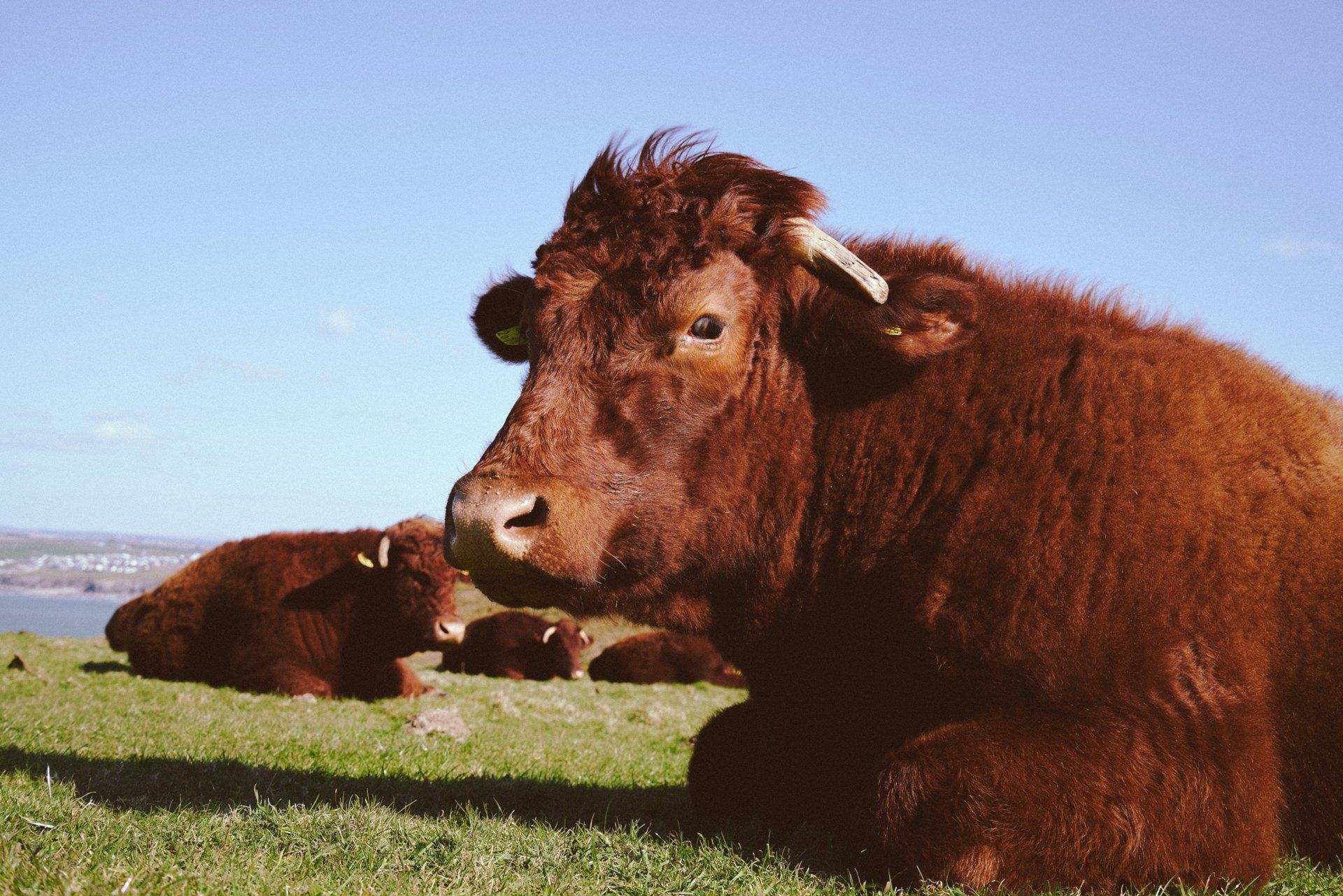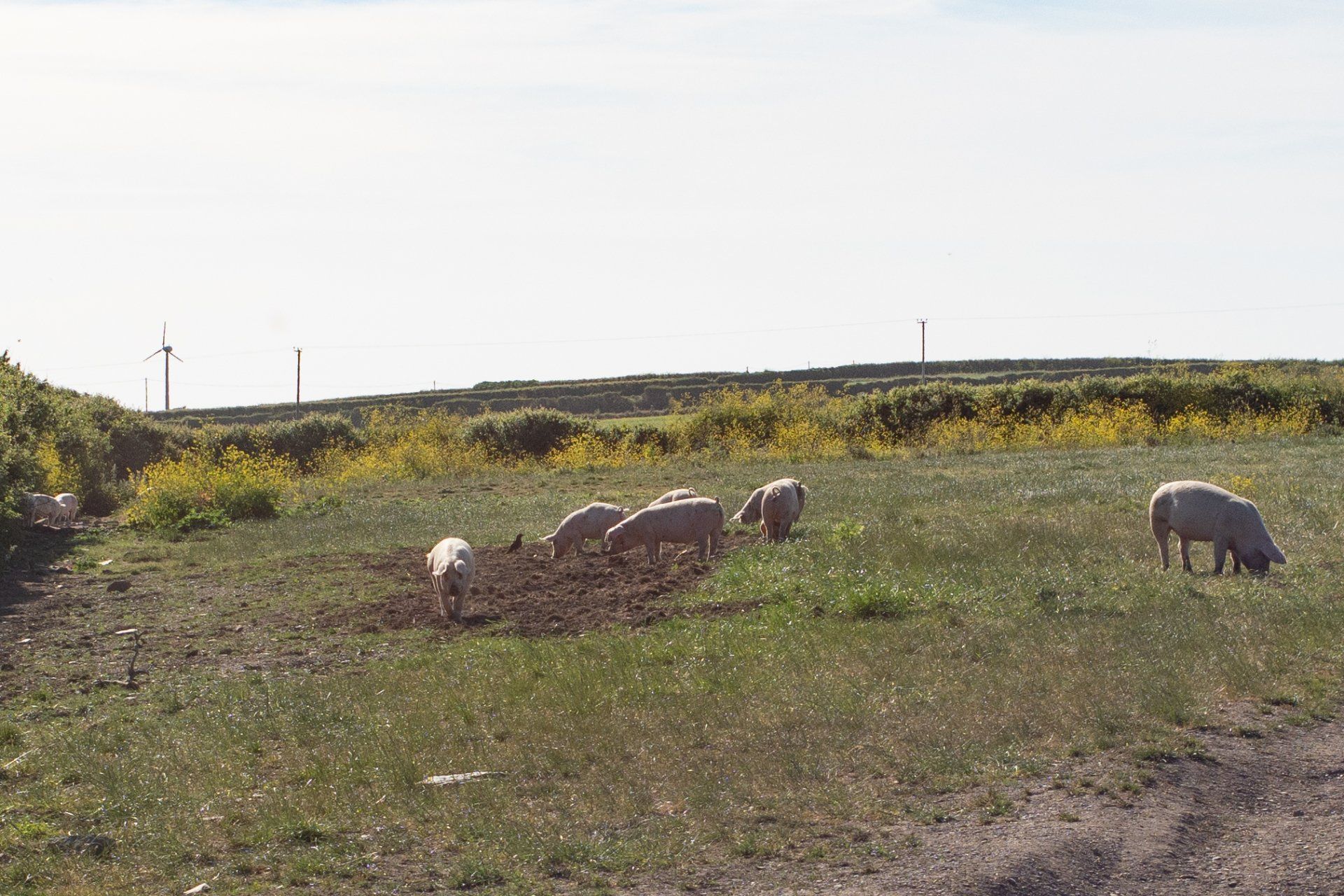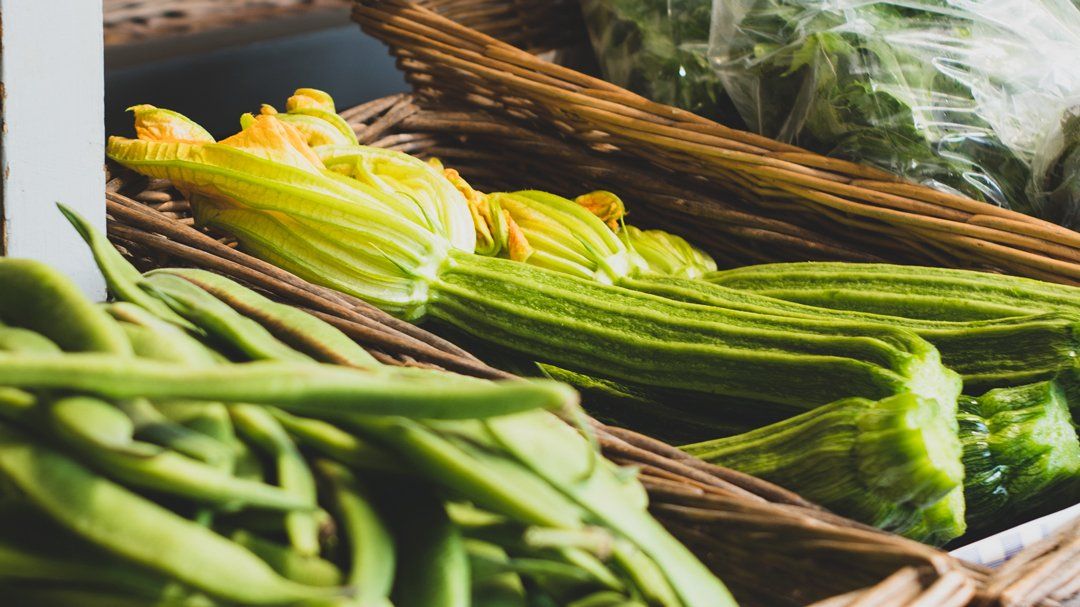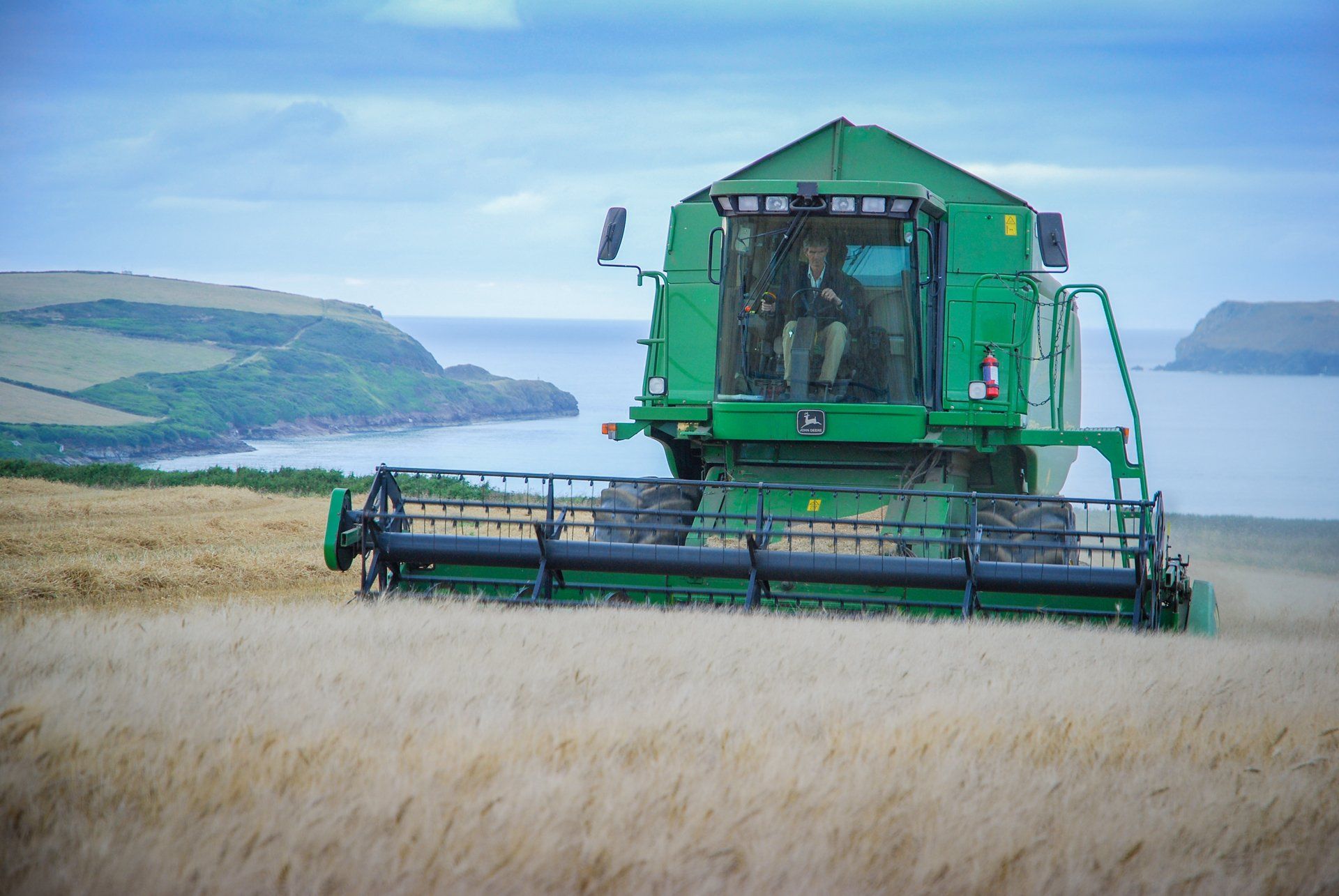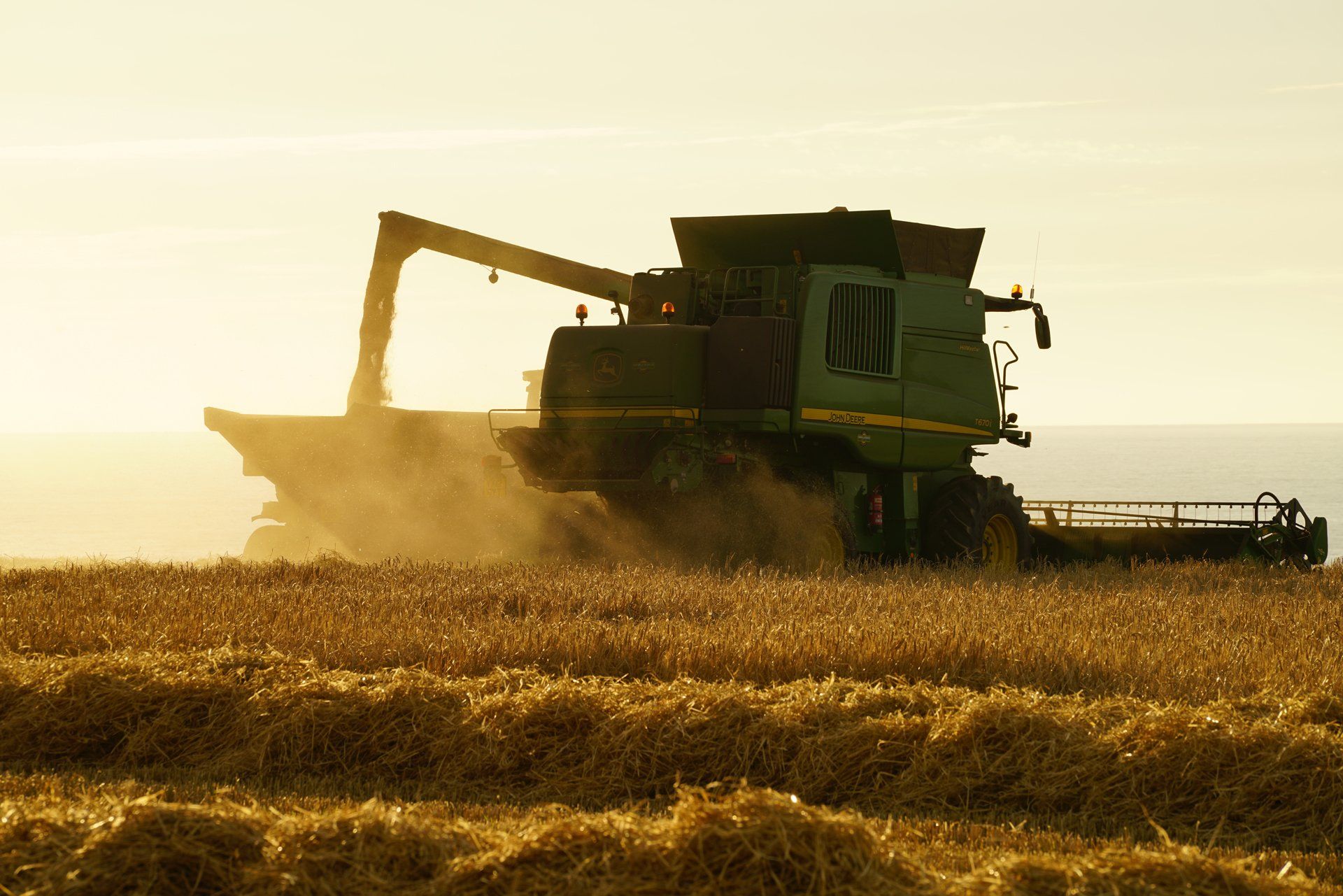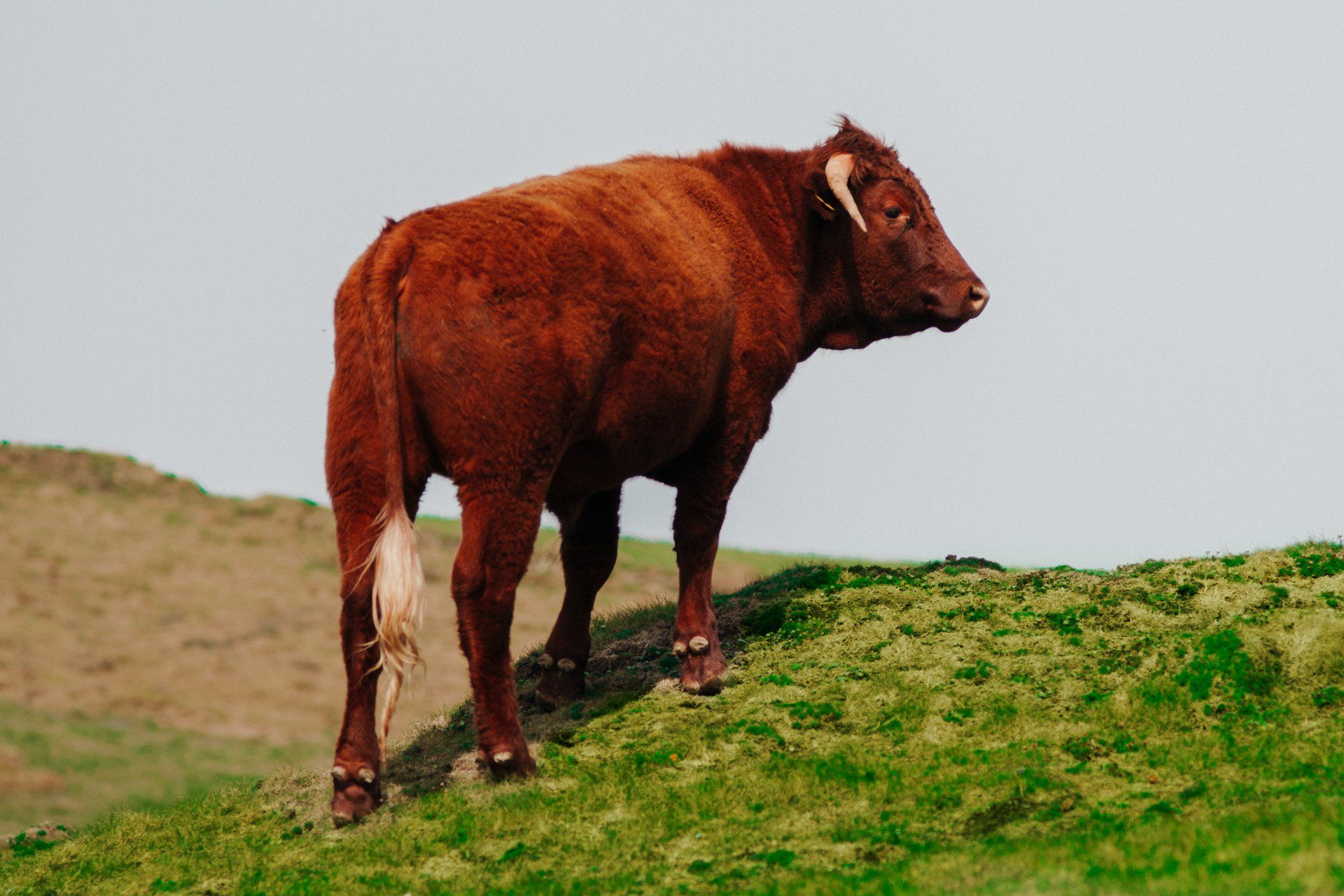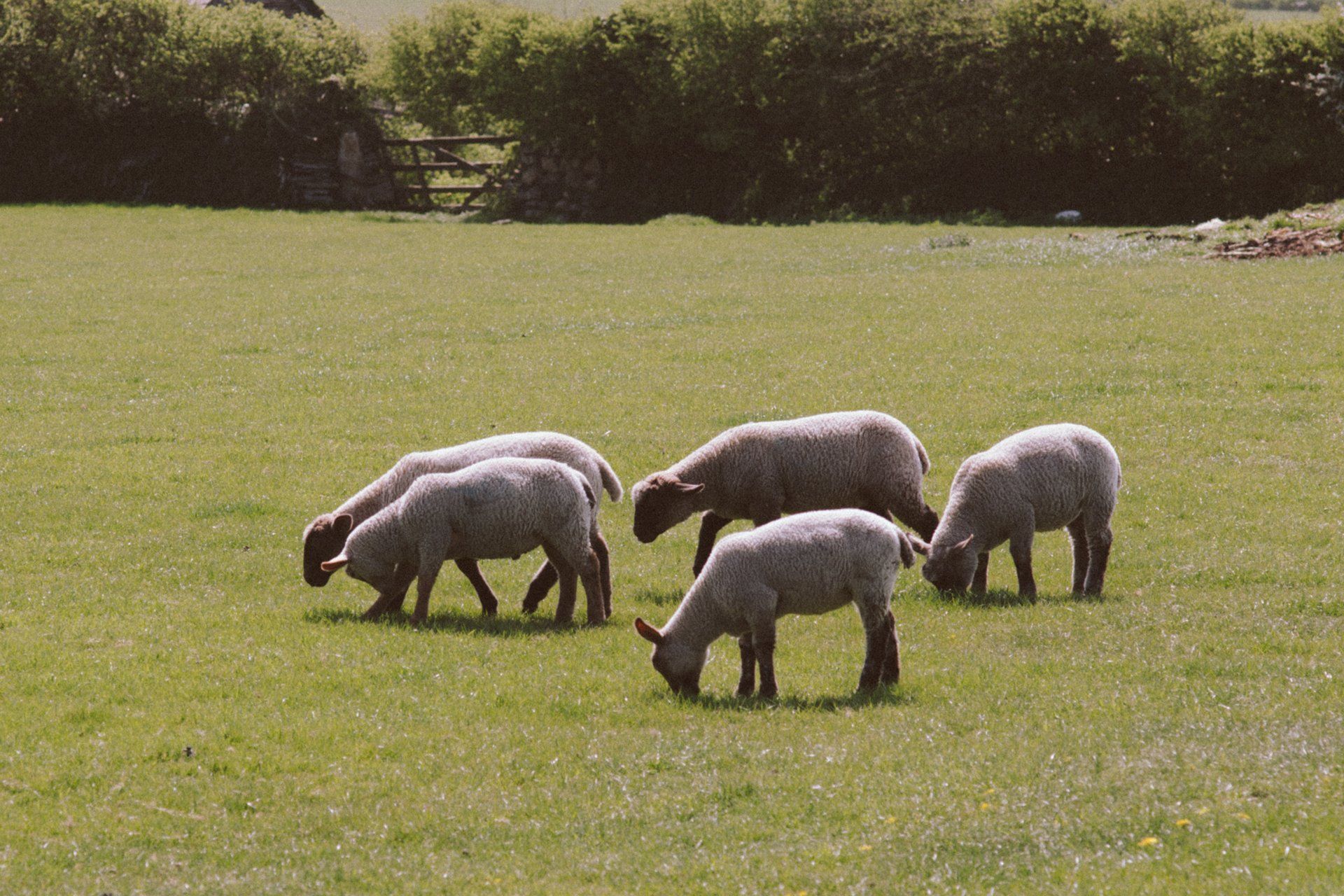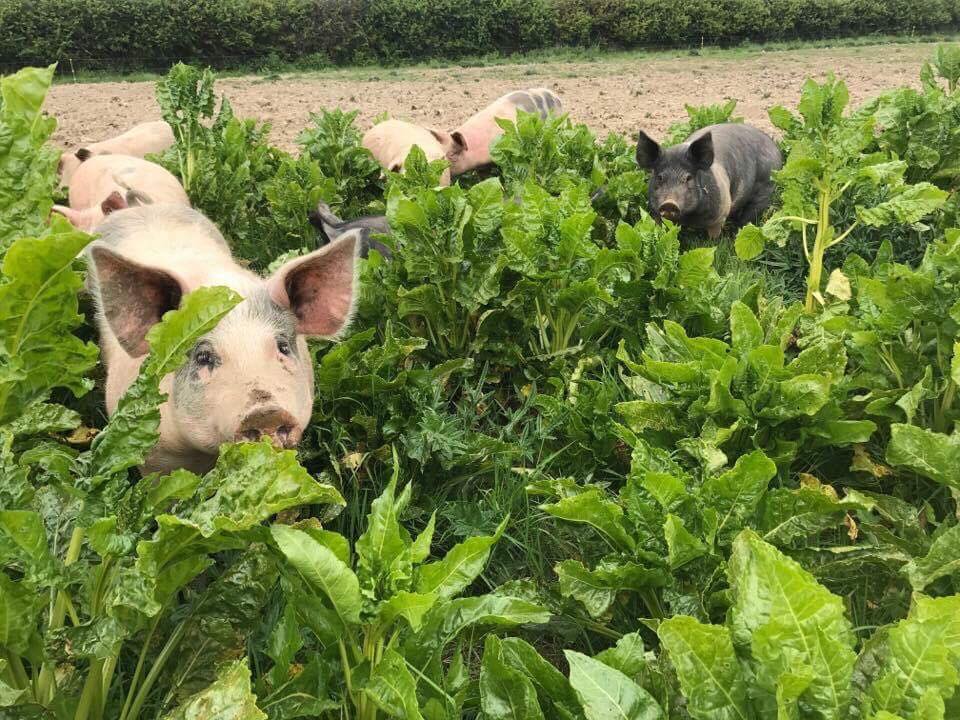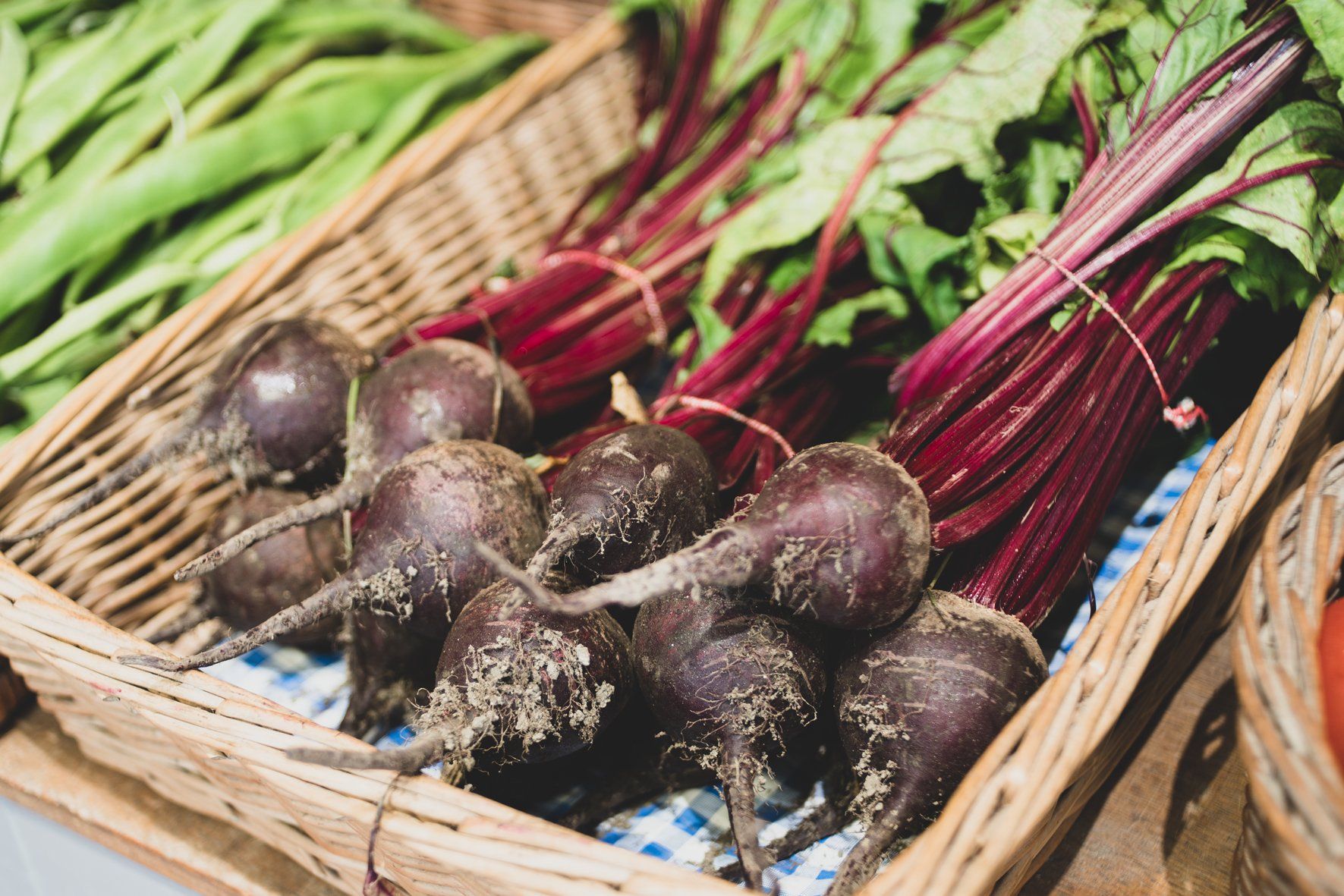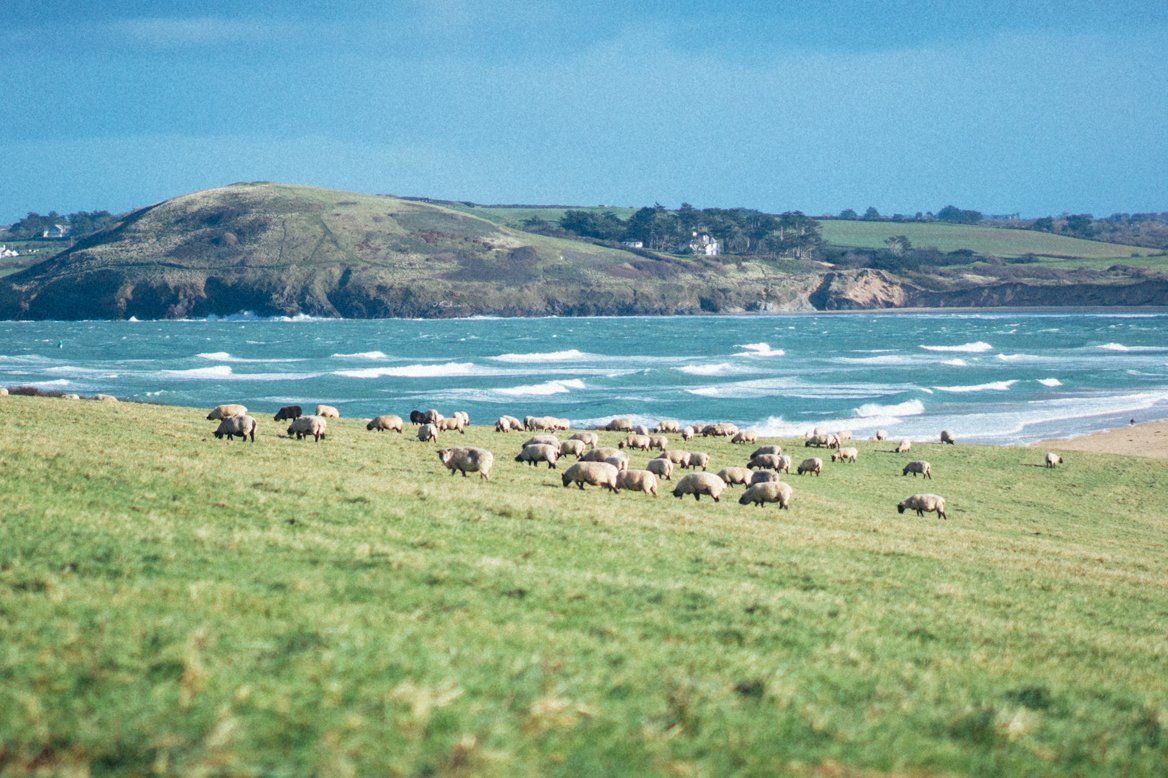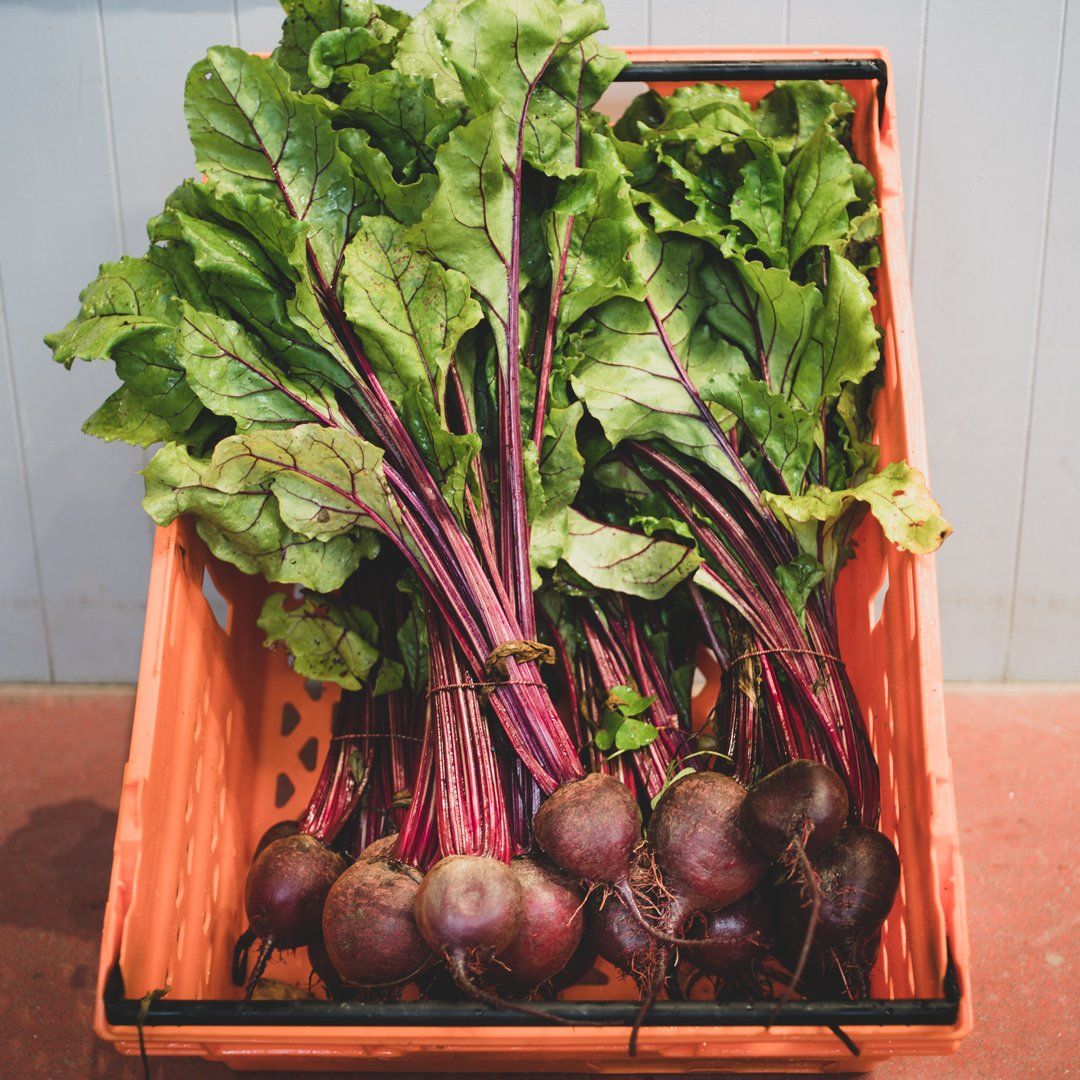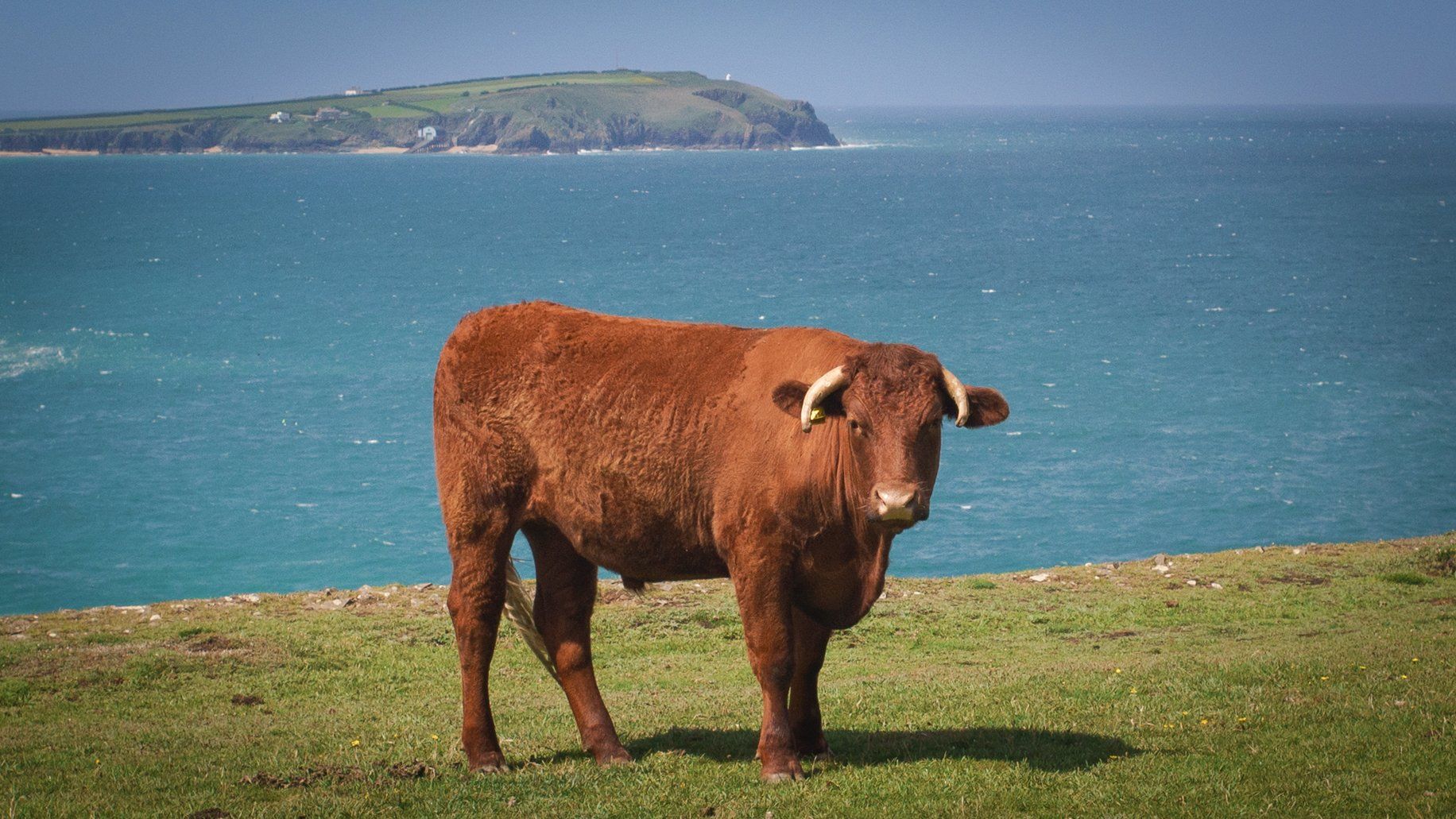We are proud of how we farm.
Hopefully, you’ll have read elsewhere on this website about Tregirls Farm and our ethos.
This extends to all our livestock being free range, pasture fed and nurtured with the highest levels of animal husbandry and welfare.
If you stomp the coast path at the very edges of the land we farm, where it meets the sea, you’ll be walking amongst our herd of Ruby Reds and our Suffolk-Mule ewes.
We grow and pick seasonally in the well-stocked gardens and fields dotted about the farm, and we feel the proximity to the North Cornish coast and the quality of our soil brings extra flavour to our crops.
And we absolutely know all that care and attention shows in the quality of the meat and the fresh produce we sell in the farm shop.
Why is grass fed important?
Biodiverse pastures, such as the ones that make up an integral part of Tregirls Farm, are home to many different coastal herbs, flowers, clover and grasses that our Ruby Reds roam and graze freely upon.
Because our cattle graze on the cliff-top pasture only, they have naturally higher levels of vitamins A and E and usually double the levels of beta-carotene and selenium compared to grain fed cattle.
Studies have shown that grass fed cattle have an overall lower fat and saturated fat content than cattle raised and finished on grain and they also have higher levels of long chain Omega 3, which can protect against heart disease and plays a key role in brain function in humans.
Additional benefits come in the form of being higher in the B vitamins thiamin and riboflavin, minerals calcium, magnesium and potassium, conjugated linoleic acid (CLA) - a potential cancer fighter - and vaccenic acid (which is transformed into CLA)
Even finishing cattle on grain reverses the benefits of a lifetime at pasture which is why our Ruby Reds are always grazing the cliff-top pastures overlooking the breathtaking Atlantic ocean.
In addition research suggests that well maintained grasslands can act as a carbon sink which in turn is beneficial to the climate.
